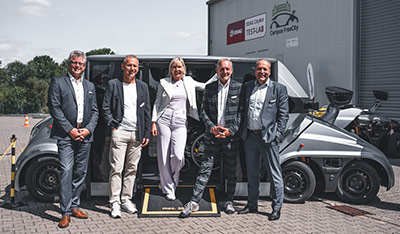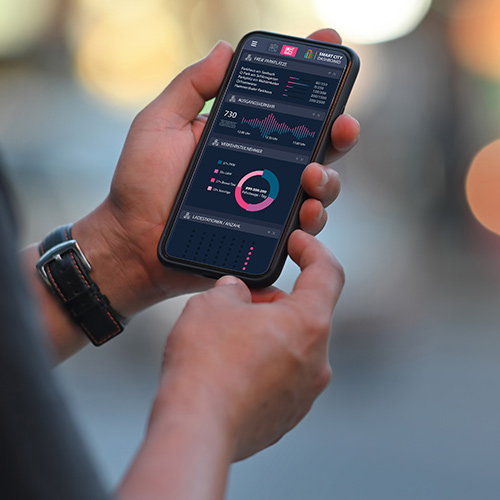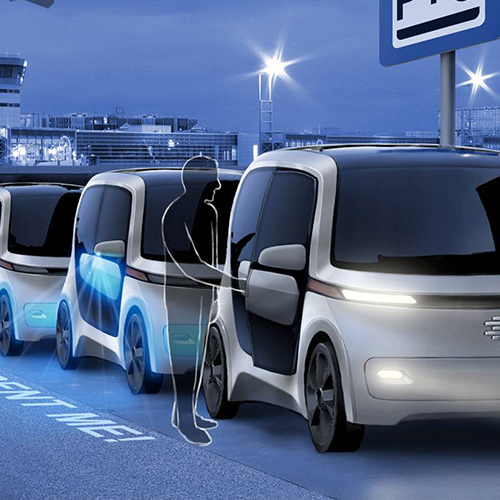Hesse’s Digital Minister Prof. Dr. Kristina Sinemus visits EDAG’s Fulda site.
Digital Minister Prof. Dr. Kristina Sinemus visited engineering service provider EDAG’s site during her summer trip. The purpose of the visit included a tour of a development and test site for highly automated driving. The minister joined experts to discuss the possibilities of a mobility revolution using highly automated robot vehicles – the EDAG CityBots – and find out more about innovative projects in the smart city environment.
During her visit, she emphasized the importance of digitalization for the mobility revolution and highlighted the relevance of such projects for urban mobility in a smart city.
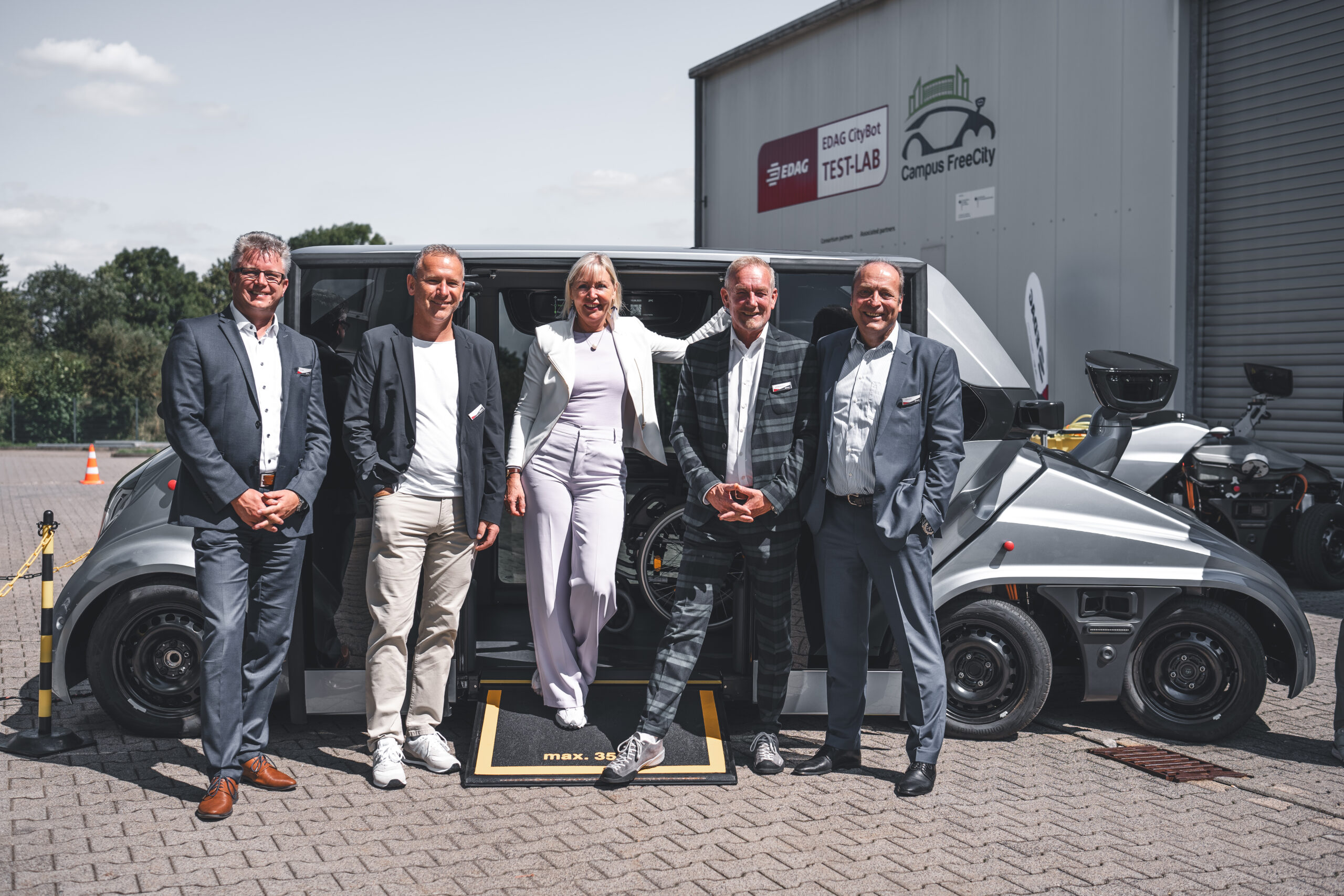
Caption: From left to right: Dirk Keller (Managing Director of EDAG Production Solutions), Gerhard Körbel (EDAG’s Overall Campus FreeCity Project Manager), Prof. Dr. Kristina Sinemus, Johannes Barckmann (EDAG CityBot Concept & Product Owner), Harald Keller (COO EDAG Engineering GmbH) Photo: EDAG Group
“From these model projects, we can see the enormous potential of digitalization, and how urban mobility can function in a smart city. They are forward-looking and enable the development to be extended from small test fields to entire cities,” emphasizes Digital Minister Sinemus. “This will benefit all citizens and also businesses. And this is our goal: digitalization should benefit everybody.” In addition to developing mobility solutions for urban areas, it is therefore also very important to keep an eye on rural regions. For the small town of Eichenzell, for instance, the EDAG Group has developed a concept for rural mobility in which use is made of mobility hubs. The town has now also published this guide: https://www.eichenzell.de/pdf/11678/Handbuch_zur_Konzeption_von_Mobilitaetsstationen_im_laendlichen_Raum.pdf
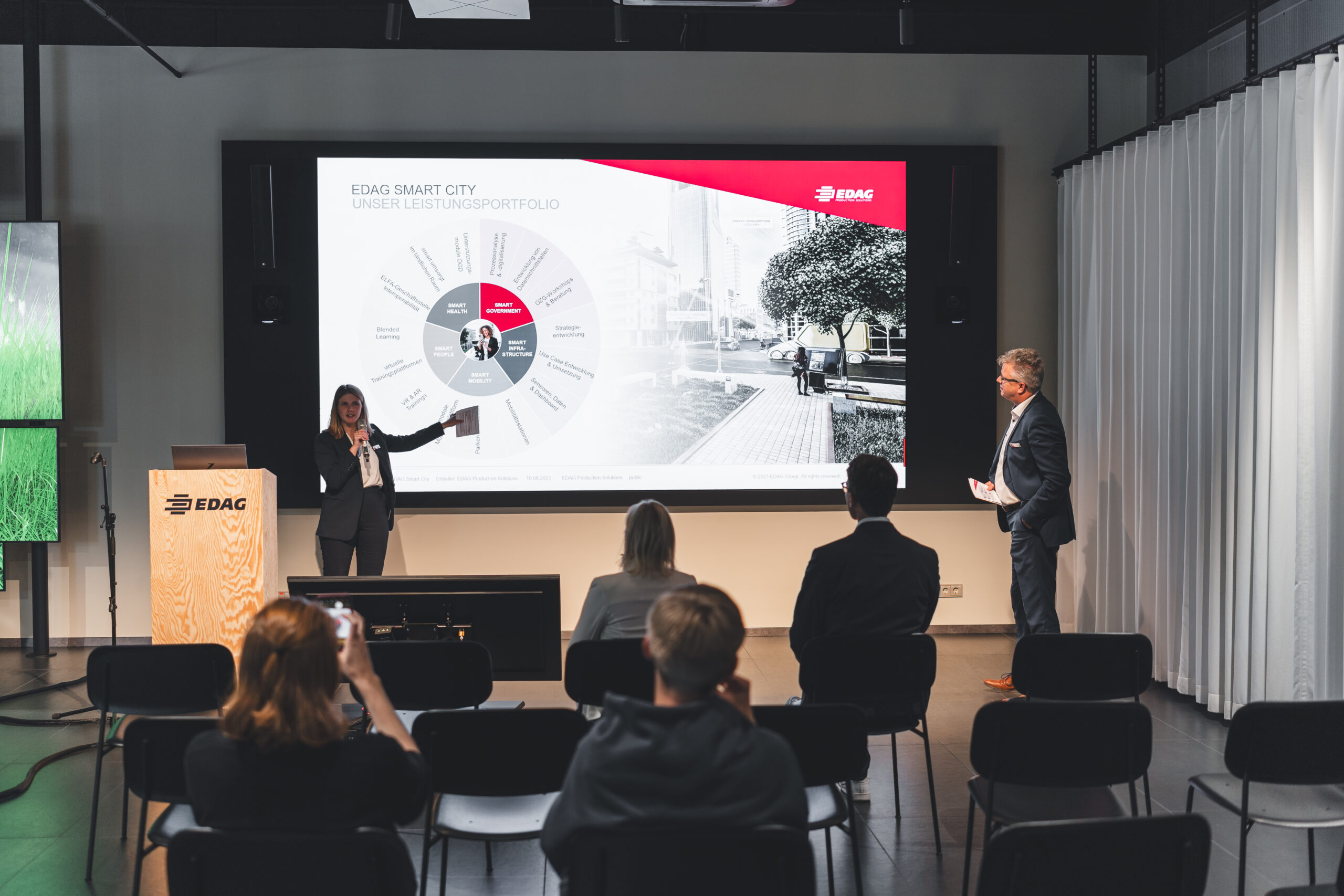
Caption: Hesse’s Digital Minister Prof. Dr. Kristina Sinemus finds out more about EDAG Production Solutions’ latest smart city projects. Photo: EDAG Group
In addition, there are other projects in which the EDAG Group is actively involved with partner company Spekter. One of these is being funded by the “Starke Heimat Hessen” program in the district of Fulda – the heavy rain early warning system. Approximately 200 sensors are to be installed in the district to measure water levels and precipitation in real time. With the help of AI, citizens can be warned whenever critical values are exceeded, and emergency forces can be alerted if necessary.
With the use of sensor technology, the EDAG Group is also looking into other sensor-based use cases in a real lab. Examples of this are cameras being used to monitor parking spaces, or analyzing the occupancy rate in offices. Sensors can also be used for planning the watering schedule for parks – another important use case in the Campus FreeCity research project. The CityBot watering module was also presented during the Digital Minister’s visit.
Dirk Keller, CEO of EDAG Production Solutions, stresses: “The CityBot has the potential to change our cities for the better: While its main use in the mornings and evenings would be passenger transport, in between times, it would make deliveries to stadiums or supermarkets, empty trash cans in parks, or take care of the grass verges along the roadside. Embedded in the smart city, the system offers tangible added value. And here we already have ready-to-use, tried and tested solutions that form the foundation for a sustainable, life-enhancing and safe city – by implementing either customized services or all-round data platform solutions. We are pleased that our services, for instance our heavy rain early warning system in the district of Fulda, are available for citizens to experience.”
